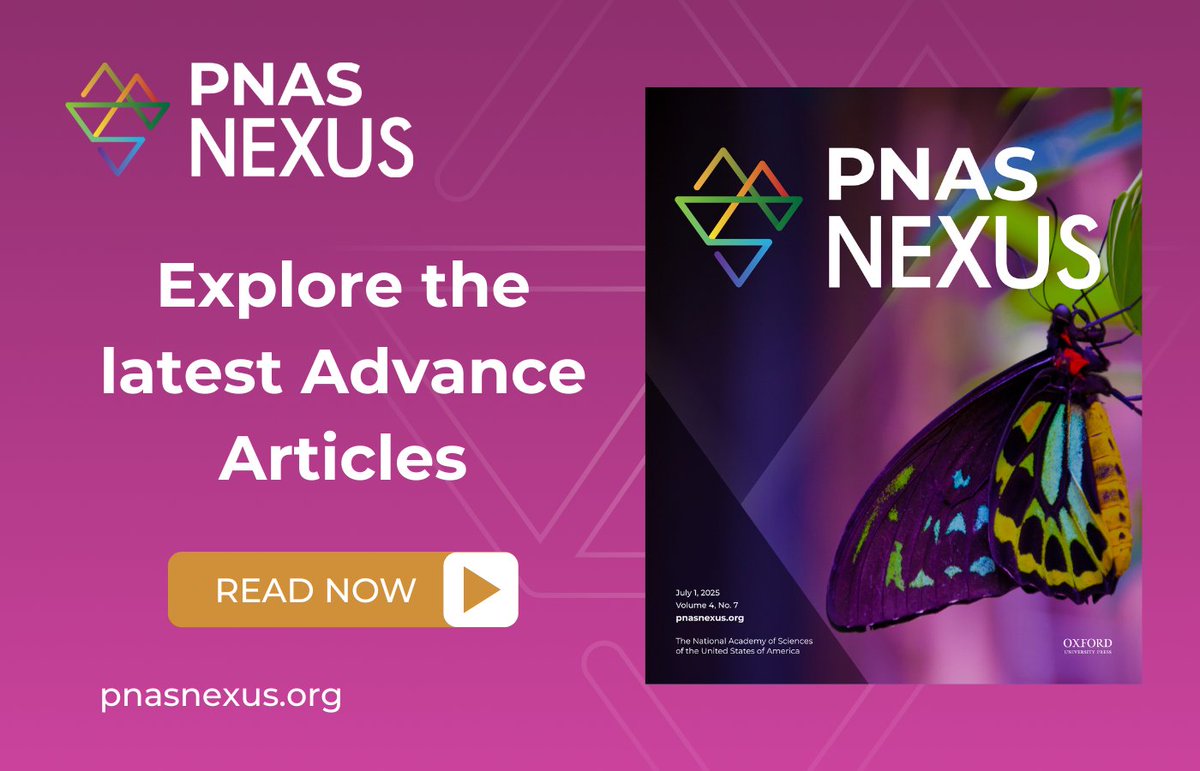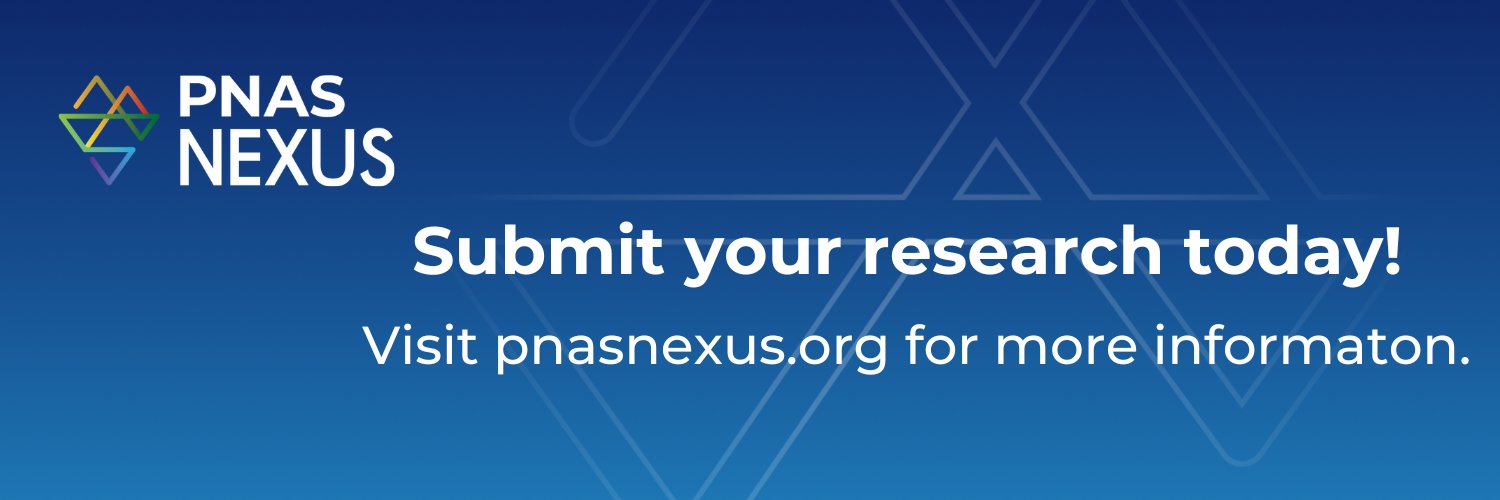
PNAS Nexus
@PNASNexus
PNAS Nexus is the fully open access sibling journal to PNAS (@PNASNews) & official journal of the National Academy of Sciences (@theNASciences).
A large survey of Australians reveals key social determinants of mental health, including financial security, local community engagement, and loneliness. A national jobs guarantee could improve mental health at scale. In PNAS Nexus: ow.ly/gHAk50WvnNF

Applications are open for the 2026–2028 #NewVoices Cohort! Mid-career SEM leaders: join @theNASEM’s network driving change on national & global issues. 📅 Apply by Sept 3, 2025 🔗 Learn more: ow.ly/9bPB50WvmTH #scipol #nasem @NewVoicesNASEM
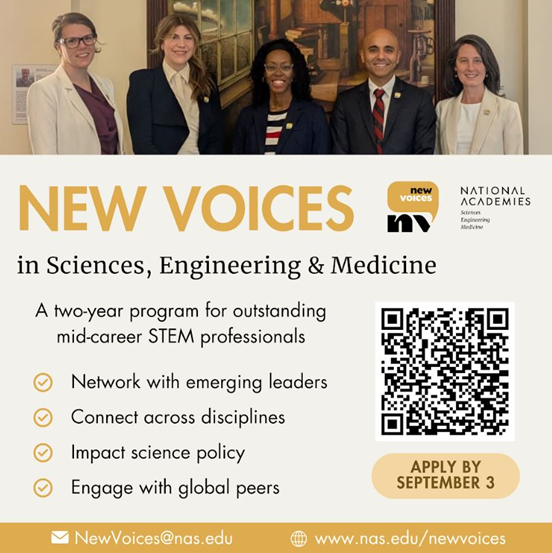
In this week’s Advanced Articles: We delve into how extreme climate whiplash events drive divergent responses of mosquito-borne diseases, the role of evolvability in navigating fitness landscapes, and more. In PNAS Nexus: ow.ly/lSmf50Wu2b4
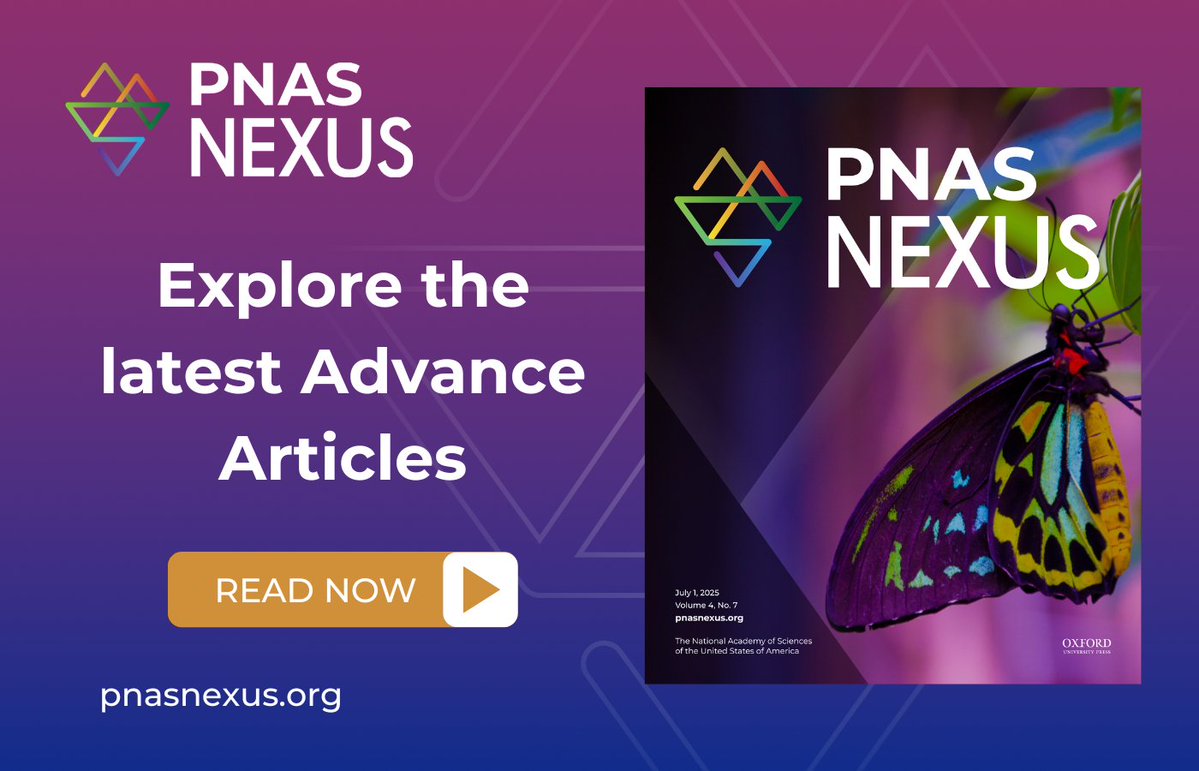
A trending PNAS Nexus article in the last week is “Engineering the battle: Design-specific analysis of stag beetle mandibles for combat efficiency.” Explore the article here: ow.ly/zl4550Wrt61 Submit your own research, visit PNAS Nexus at ow.ly/fSMV50Wrt62.
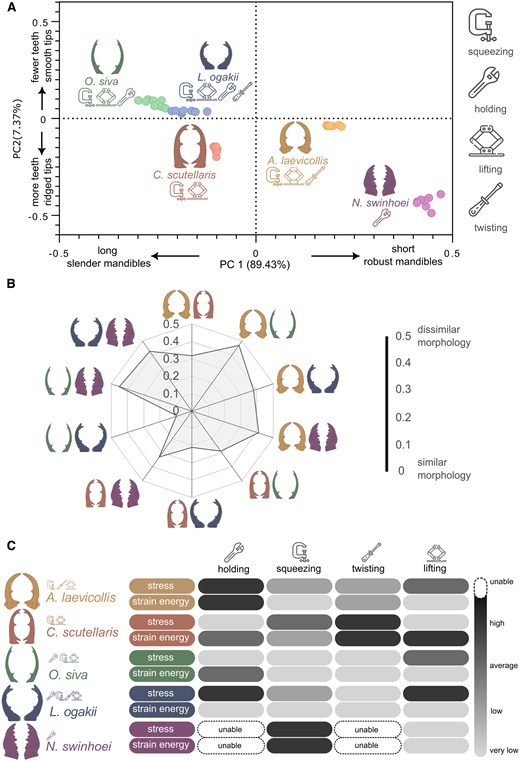
Half of English-language social science and medicine research publications are about high-income countries, even though these countries only contain 17% of the world’s population. In PNAS Nexus: ow.ly/osAJ50WrqUo
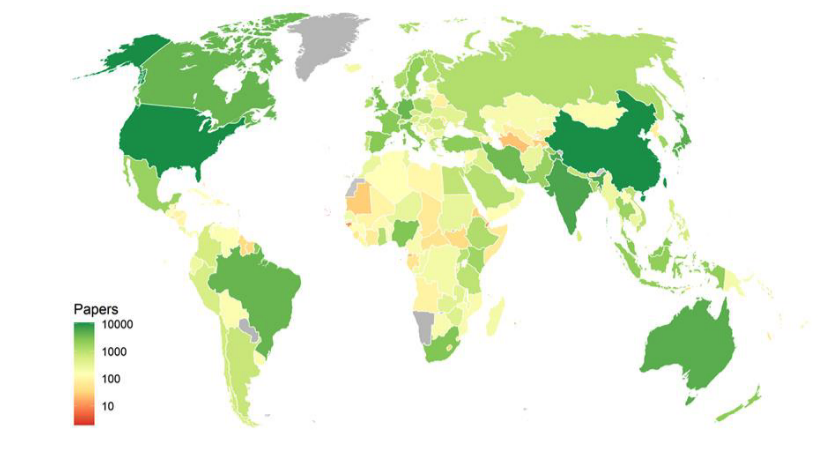
A study finds that social media activity from antiregulation advocacy groups and media coverage of gun laws or violent crime can directly influence short-term buying behavior. In @Physorg_com: ow.ly/bAPk50Wrk8j In PNAS Nexus: ow.ly/7Ip050Wrk8c
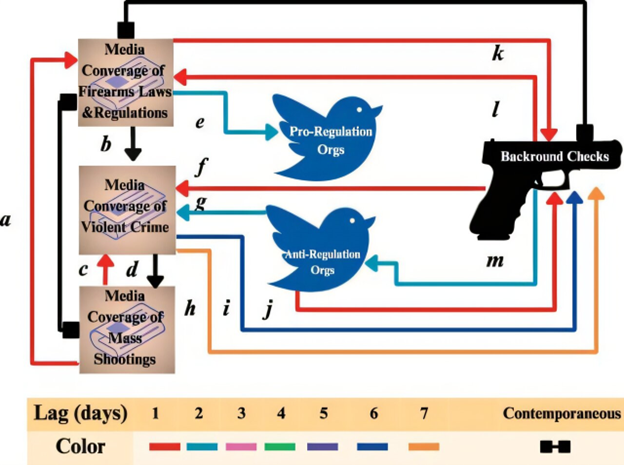
A study explores the consequences of years with low sea ice in Antarctica, including declining krill populations, warming seas, increased ice-shelf calving, and reduced access for researchers. In PNAS Nexus: ow.ly/Ufoa50WrqKA
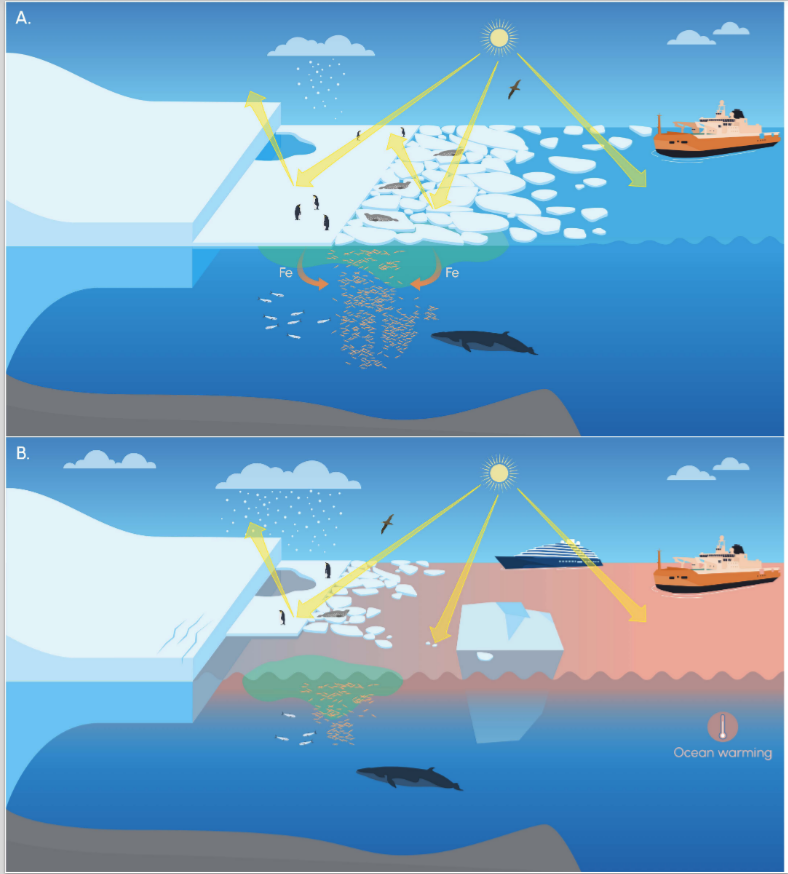
In her latest Editorial, PNAS Editor-in-Chief @MayBerenbaum explores the dangers of political interference in science—from Lysenkoism to today’s global issues—and underscores the urgent need to protect scientific integrity. Read more: ow.ly/U6lf50WriwS
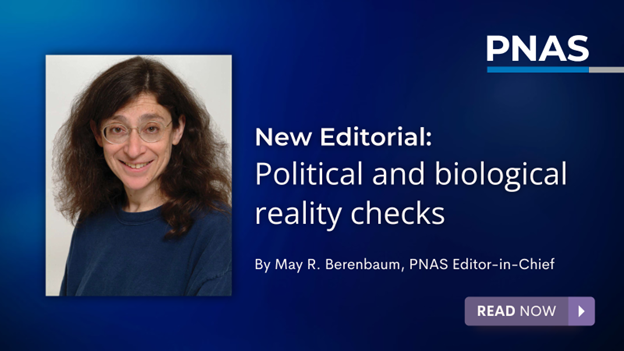
In this week’s Advanced Articles: Delayed interactions reshape ecosystem complexity, a new framework for analyzing academic pathways through college, and more. In PNAS Nexus: ow.ly/xob750WrhvK

A study of public health messages during the COVID-19 pandemic finds that endorsements from leaders, experts, or celebrities were polarizing and ineffective. Sharing policies and facts is effective when messages move people from both parties. Read more: ow.ly/8W3h50WpBff
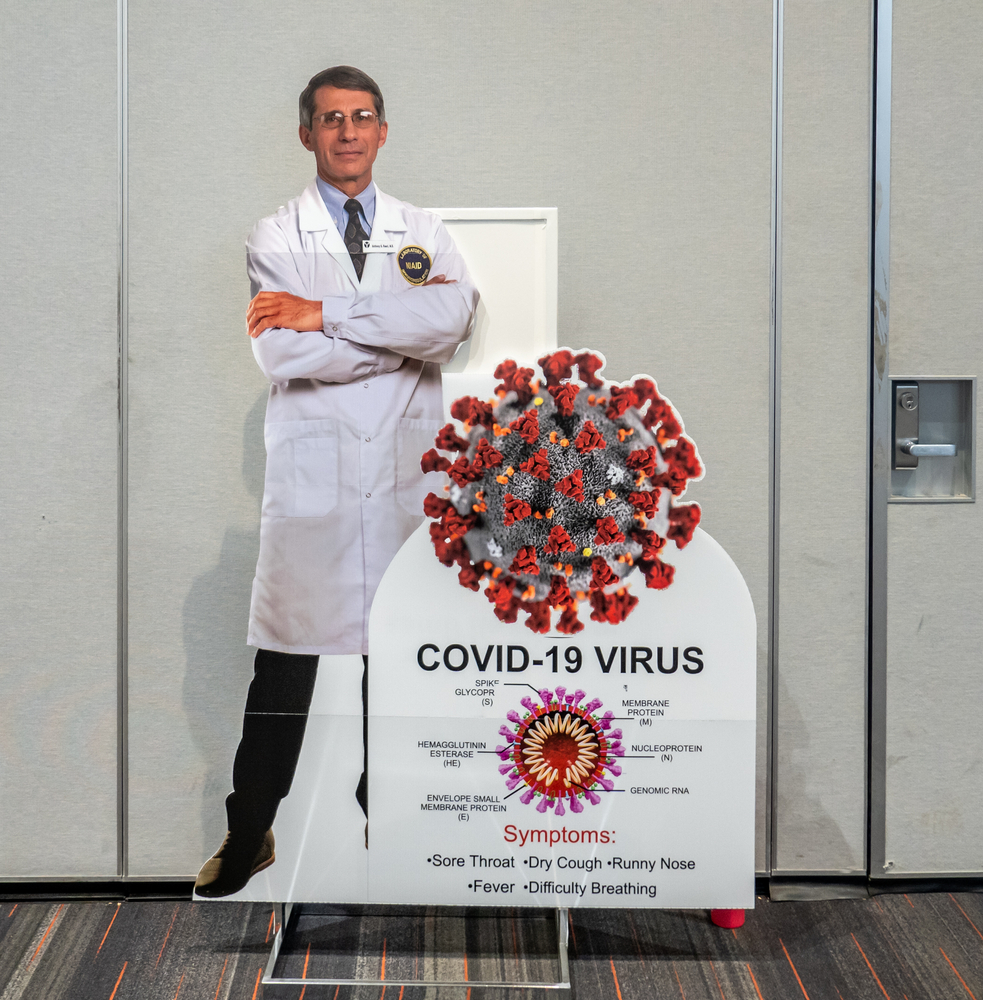
A trending PNAS Nexus article in the last week is “Motivations to connect with like-minded audiences increase partisan sharing on social media.” Explore the article here: ow.ly/VV4450WpAPZ Submit your own research, visit PNAS Nexus at ow.ly/GoXY50WpAQ4.
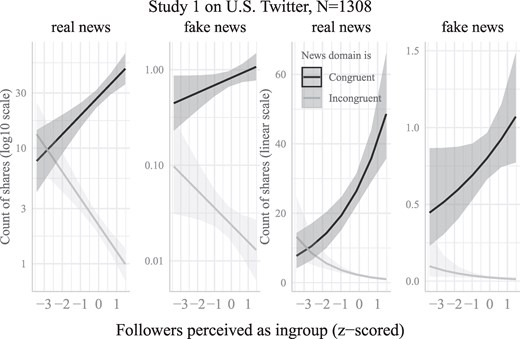
People were more likely to believe in conspiracy theories about the attempted assassination of President Trump if they heard them from people they knew than if they heard them on social media, according to a study. In PNAS Nexus: ow.ly/Z31Q50WpBaB
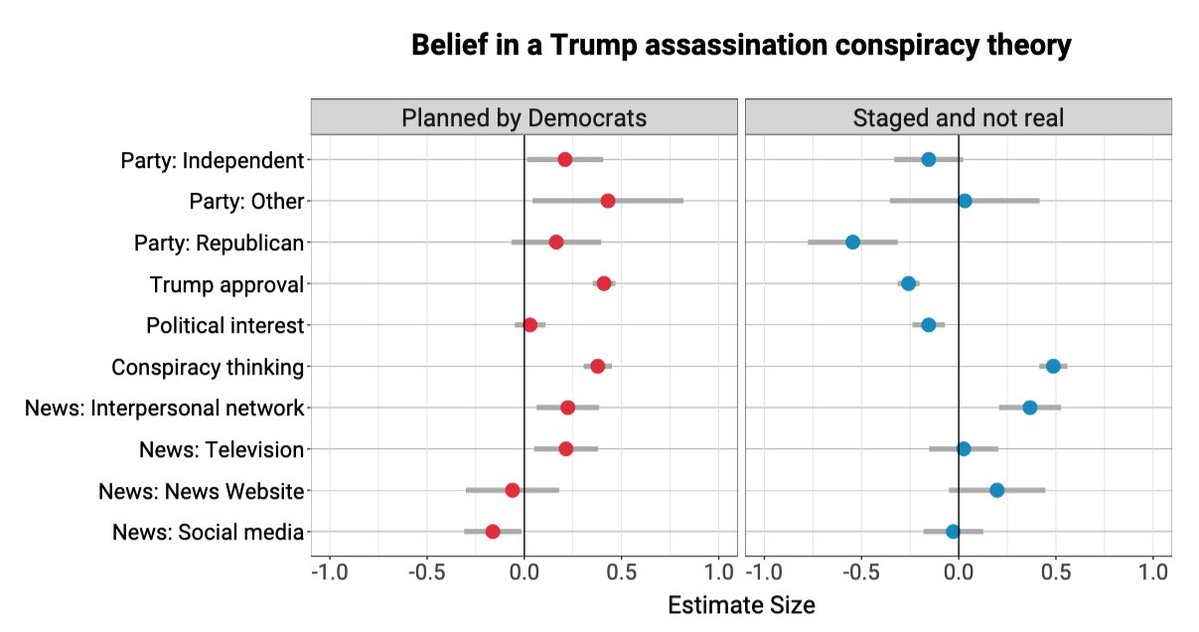
You can’t infer cognitive abilities just by looking at a brain. But AI that “stacks” MRI data from multiple tasks and resting states can predict them with surprising accuracy. In @medical_xpress: ow.ly/McwA50WpAC4 In PNAS Nexus: ow.ly/VT4A50WpAC1
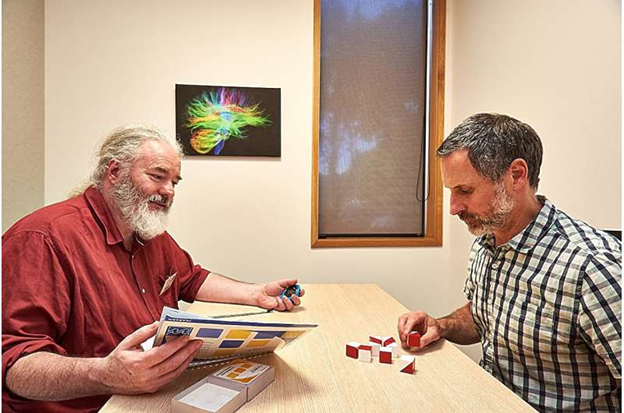
A study of how media coverage of gun-related topics and the social media activity of advocacy groups affects gun buying finds that the activity of anti-gun-regulation groups directly drives firearm acquisitions. In PNAS Nexus: ow.ly/LXKR50Wpgk8

Stag beetles are known for their gymnastic battle abilities. The morphometrics of the mandibles of five species of stag beetles reveal specialization for specific combat maneuvers, particularly squeezing and twisting. In PNAS Nexus: ow.ly/eJeE50Wpel8
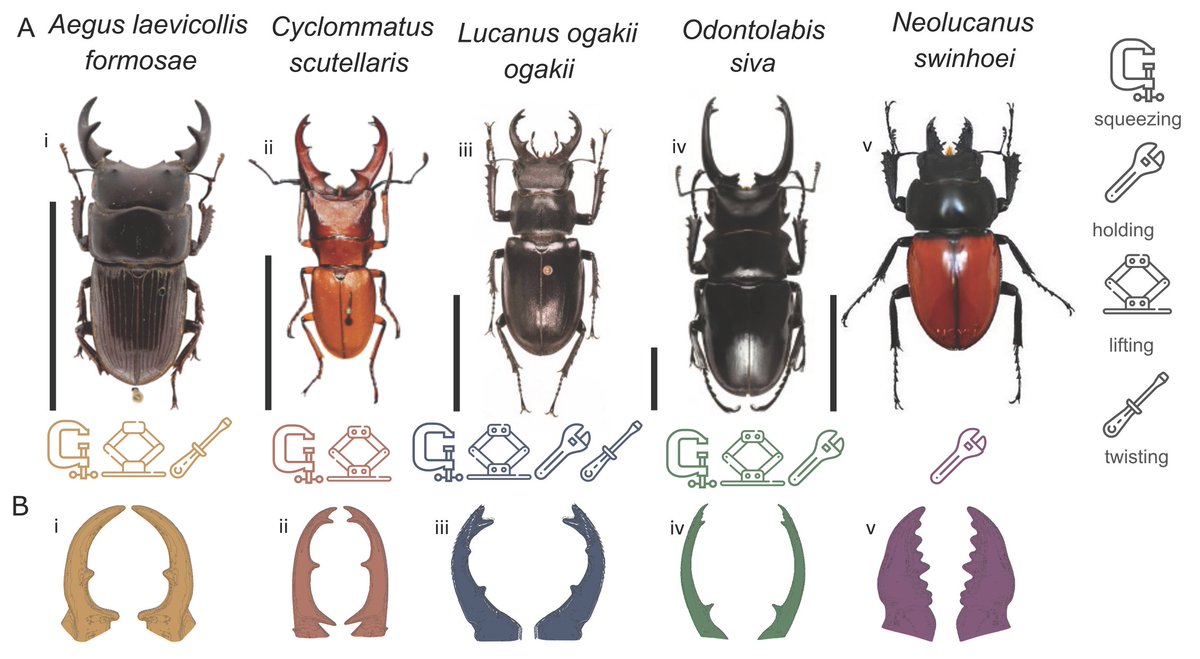
The @PNASNews Collective Artificial Intelligence and Evolutionary Dynamics Special Feature showcases recent advances in research at the intersection of game theory, artificial intelligence, and population dynamics. Explore the Special Feature: ow.ly/NH7A50WpcZO
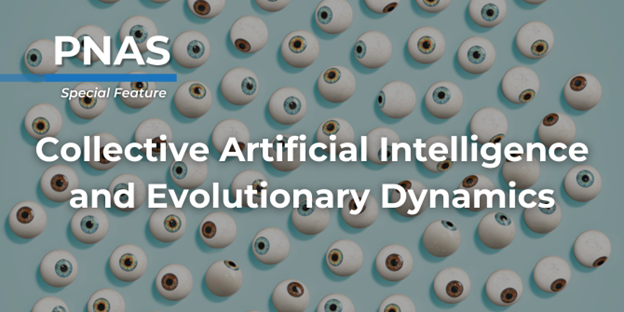
Using CRISPR to knock out two genes that are associated with the production of aqueous humor can reduce intraocular pressure in mice, potentially making it a useful once-a-month therapy for glaucoma patients—and a replacement for daily drops. Read more: ow.ly/PU4750Wopvn
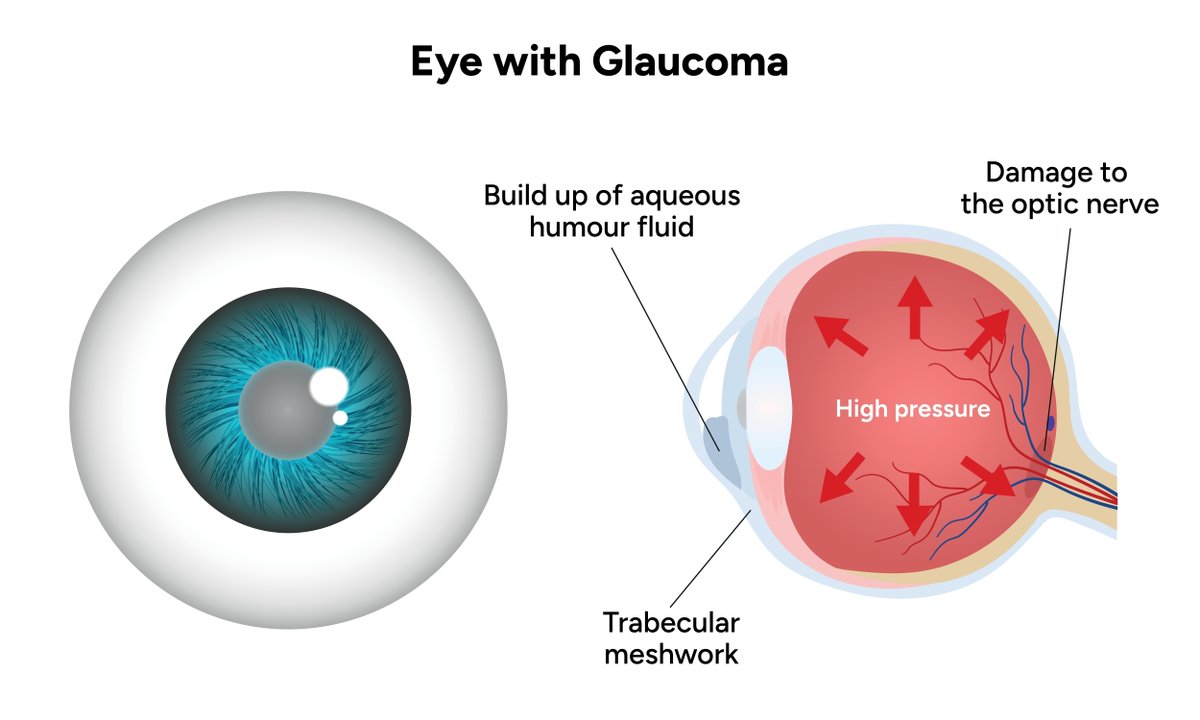
The @PNASNews Reimagining Science Communication in the COVID Era and Beyond Special Feature advocates for a paradigm shift in science communication, from traditional, top-down dissemination to participatory and inclusive approaches. Explore now: ow.ly/wxzL50Wooku
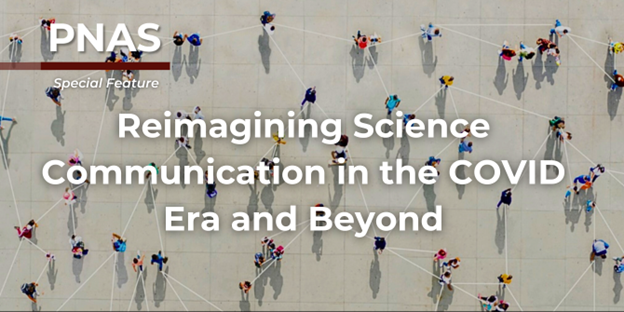
Identifying images as “AI-generated” has little impact on an individual’s stated likelihood of engaging with them, according to a survey, but labeling images as “False,” “Manipulated,” or “Artificial” does reduce engagement intentions. In PNAS Nexus: ow.ly/2UT550WnR4i

In this week’s Advanced Articles : Propofol reverses surgery-induced microglial activation and cognitive impairment in aged mice, VX-445 (Elexacaftor) inhibits chloride secretion by blocking KCa3.1 channels, and more. In PNAS Nexus: ow.ly/KIym50WnQRf
